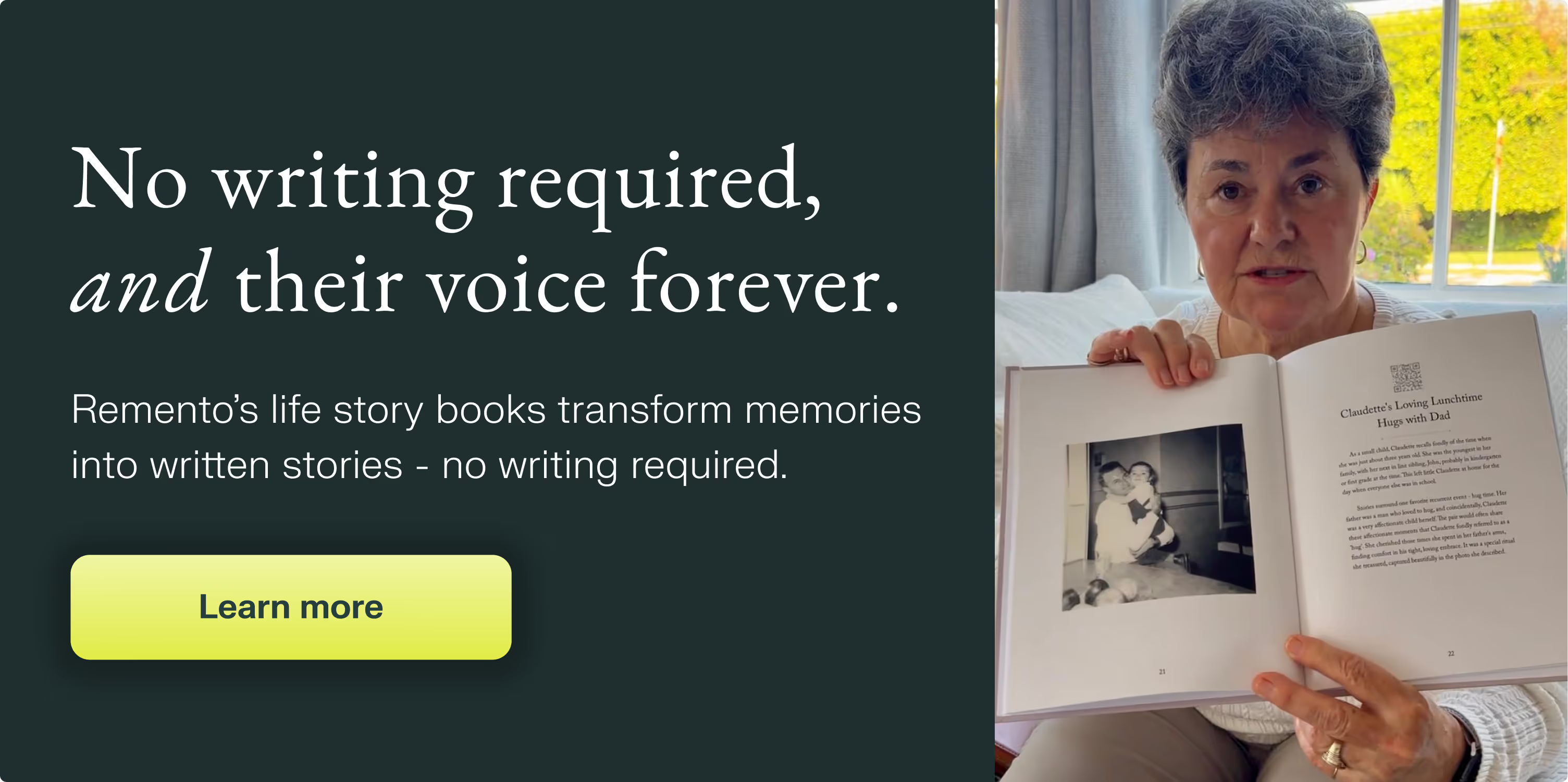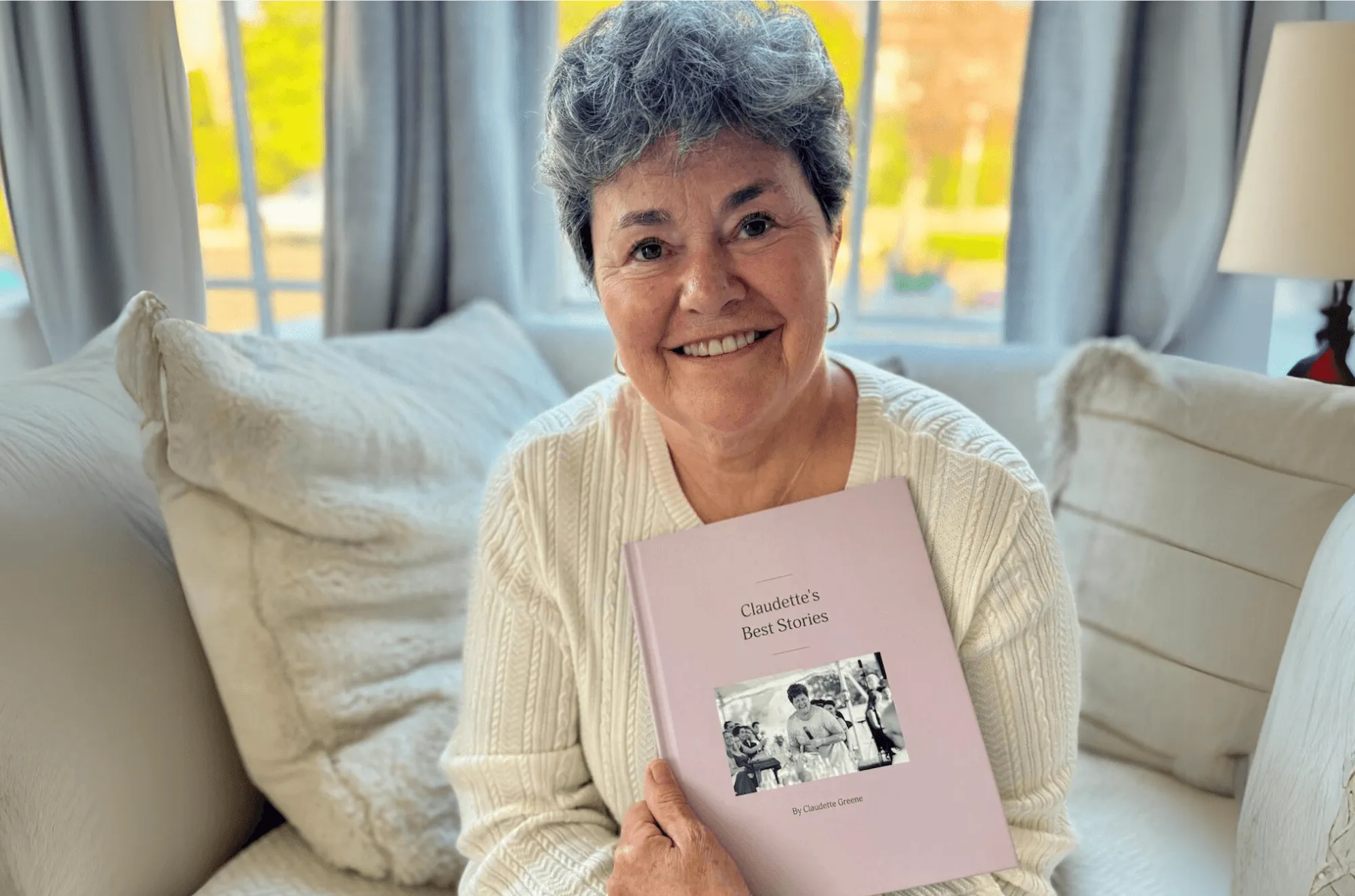Guaranteed to teach you things you never knew.
What Is Autobiographical Memory: A Simple Guide
Autobiographical memory allows us to remember our own personal experiences and the events that have happened to us.
Have you ever tried to recall a specific memory from your past only to realize that you can't remember all the details? Or have you ever wondered why some of your childhood memories are crystal clear while others seem to have faded away over time? Autobiographical memory is not as simple as it may seem and requires a deeper understanding to uncover its complexities. To help make this concept easier to understand, let’s offer some clarity on what exactly autobiographical memory entails and provide useful examples that illustrate the different levels of detail involved.
You can also get a Remento book to turn your memories into a keepsake book.
What is autobiographical memory?
Autobiographical memory is the type of memory that allows us to remember our own personal experiences and events that have happened to us. It is the memory of our own life, and it allows us to reflect on the past and make sense of our present and future. It helps us to learn from the past and make decisions based on our past experiences. Autobiographical memory is also an important aspect of our identity. It helps us to remember who we are and where we come from, and it allows us to share our personal stories with others.
Do Some People Have Superior Autobiographical Memory?
Yes, some people do have superior autobiographical memory. These people, known as "superior autobiographical memory holders," have the ability to recall a vast amount of information about their personal experiences with incredible detail. While it is not clear exactly what causes superior autobiographical memory, it is thought to be a combination of genetics and environment. Some people may be naturally inclined to have a better memory, while others may develop superior autobiographical memory through the use of mnemonic techniques or other memory-enhancing strategies.

Types of Autobiographical Memory
There are four different types of autobiographical memory, including episodic, semantic, implicit, and explicit.
1. Episodic memory: This is the memory of specific events that have happened to us, including the time, place, and context in which they occurred. Examples include:
- Remembering your first day of school
- Recalling a specific vacation you took
- Reliving the details of your wedding day
2. Semantic memory: This is the memory of general knowledge and facts, including language and concepts. Examples include:
- Knowing that the capital of France is Paris
- Understanding the concept of gravity
- Recall the definition of the word "autobiographical"
3. Implicit memory: This is the type of memory that is not consciously controlled, such as muscle memory. Examples include:
- Riding a bike without consciously thinking about it
- Typing on a keyboard without consciously thinking about where each key is located
- Remembering how to perform a task without consciously thinking about it (such as cooking a favorite dish)
4. Explicit memory: This is the type of memory that is consciously controlled, and it includes both episodic and semantic memory. Examples include:
- Recalling the names of past coworkers or classmates
- Remembering your phone number or address
- Reflecting on a specific event or experience and recalling the details consciously
Overall, autobiographical memory is an important aspect of our lives that allows us to reflect on our past experiences and make sense of the present and future. While some people may have superior autobiographical memory, it is something that we all possess to some degree.
Next up: Why Nostalgia and Reminiscing is Good for You

Their stories, forever at your fingertips
Remento’s life story books turn a parent or grandparent’s memories of the past into a keepsake book for the future - no writing required.
Capture priceless family memories today
Join the thousands of families using Remento to preserve family history, all without writing a word.
.avif)
